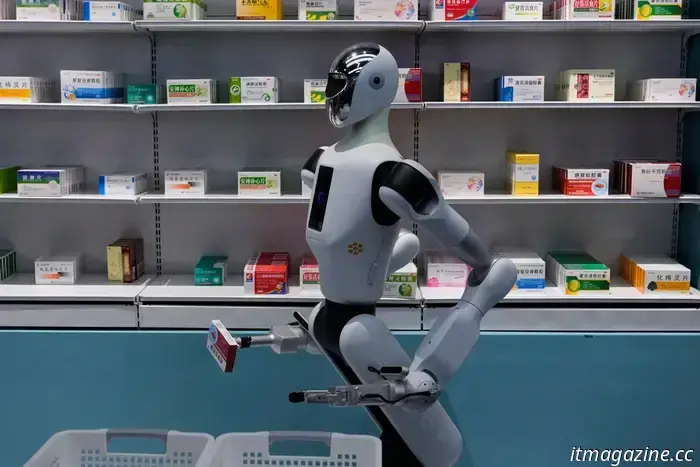
A store of android robots has opened in China.
A landmark event for the global robotics industry took place in Beijing. This week, as part of the national campaign for the development of humanoid robots, the Robot Mall was opened—a specialized shopping center fully dedicated to humanoid robots. It is not just an exhibition space but a full-fledged commercial project offering a range of services from sales to after-sales support.
Four floors of innovative space showcase an astonishing spectrum of capabilities of modern androids. Visitors can see how mechanical creations confidently perform tasks that five years ago were regarded as exclusively human prerogatives—from administrative work at reception desks to delicate manipulations of dishes and drinks, from logistical operations in pharmacies to complex gaming interactions in chess or football. Particular interest is drawn to robotic embodiments of historical figures, allowing visitors to literally touch the legacy of Einstein, Newton, or Chinese poet Li Bai.
AP Photo/Mahesh Kumar A.
China’s approach to robotics development is systematic and large-scale. Alongside the Beijing project, a similar center already operates in Shenzhen, and government support for the industry is expressed not only through direct investments but also by creating an entire ecosystem that includes educational programs, research institutes, and even robotic sports competitions.
For the Russian market, the emergence of such commercial platforms in China creates both new opportunities and real challenges. On one hand, it accelerates Russian companies’ access to advanced technologies at more competitive prices, as there is already noticeable interest from domestic businesses in service robots for hotels, restaurants, and retail chains. On the other hand, mass import of ready-made solutions without developing domestic service and adaptation infrastructure and manufacturing will only increase dependence on foreign suppliers.
AP Photo/Mahesh Kumar A.
The prospects for the Russian market largely depend on the ability of local developers and investors to find a balance between adopting ready-made solutions and developing their own technologies. IT-World experts suggest that there is development potential for Russian players in niche solutions tailored to Russian conditions, from climate features to language environment. At the same time, the key to success will not so much be technological perfection but the convenience of integrating robots into existing business processes and everyday life.
AP Photo/Mahesh Kumar A.
The opening of Chinese robotics centers demonstrates what can be achieved through thirty years of consistent development and state-led research in artificial intelligence and automation. For Russia, this presents both an opportunity to accelerate technological progress and a warning about the need to strengthen its own scientific and manufacturing potential in this strategically important industry. As Beijing’s example shows, the future of robotics lies not in creating perfect machines but in developing practical solutions that, despite occasional failures, can genuinely improve the quality of life and work for people.
AP Photo/Mahesh Kumar A.



Other articles
A store of android robots has opened in China.
A landmark event for the global robotics industry took place in Beijing. This week, as part of a national campaign to develop humanoid robots, the Robot Mall was inaugurated – a specialized shopping center fully dedicated to humanoid robots. It is not just an exhibition space, but a comprehensive commercial project offering a range of services from sales to after-sales support.
